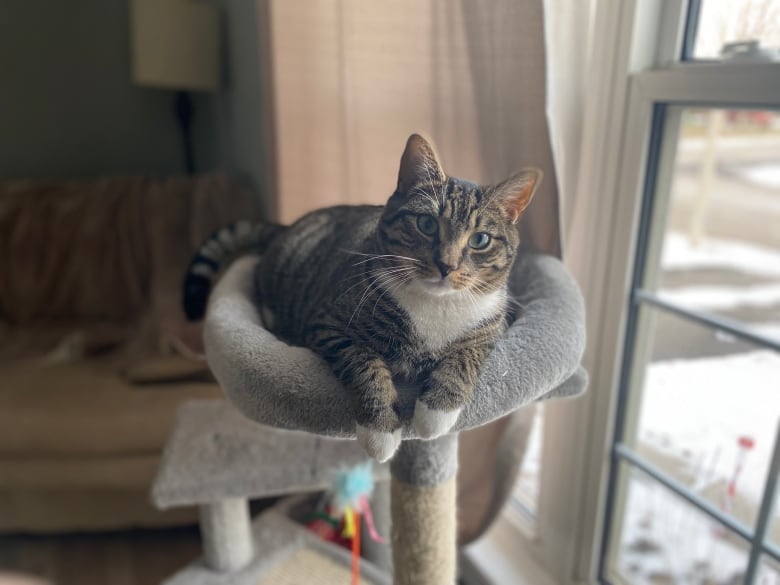
The animals usually come to them in good shape.
That’s the point, according to Krista Foreman, a veterinarian and owner of SouthPaw animal hospital in Fredericton.
Women fleeing domestic violence usually love and care for their animals, which is why the Safe For Pets Too program exists — to find a temporary home until a woman can find a safe, animal-friendly place to live.
Safe For Pets Too works with shelters and police agencies to take in animals that women don’t want to leave behind when escaping an abusive situation. In just over decade of fostering dogs, cats, horses, reptiles and even a goat, Foreman estimates the program has had a 95 per cent success rate in reconnecting owners with their pets.
Volunteers foster pets for up to 30 days while women using the program search for appropriate housing. If needed, that foster period can be extended to 60 days.
“I’m glad it’s available to help people,” said Foreman, who helped start the program in 2011.
Foreman graduated from Atlantic Vet College in 1999, and has been operating her animal hospital in Fredericton since 2004. She helps find volunteers to foster animals and co-ordinates with veterinarians willing to donate their time to examine rescued pets.
There are some volunteers who’ve been fostering since the program started, Foreman said.
Safety is top of mind
For safety reasons, volunteers don’t post pictures of the foster pets on social media, and the animals they take in aren’t from the same area they live in — not even the survivor knows where their pet is until they’re reunited, though they receive regular updates about the animal’s wellbeing.
The program usually helps about 15 to 20 women every year, according to Tammy Ward, a retired RCMP officer who’s also chair of the program’s committee.

She said when the program first started, people started using it right away. One of the first women who used Safe For Pets Too had an autistic son whose companion was a dog.
“She basically said, ‘this is my family member, I can’t just leave it behind.'”
Ward said a lot of women feel the same way; fearing what may happen to their pet, or that they’ll never be able to get the pet back once they’re gone.
Women’s shelters also don’t take in animals, another barrier for people trying to leave abusive situations, Ward said. Money can also be a problem; sometimes women leaving abusive situations aren’t working, and don’t have a source of income to care for their pet.
“They’re leaving with nothing but what they’re wearing in a lot of instances, so it’s hard for them to start over.”
How it works
For safety reasons, the program isn’t as simple as going to a survivor’s house and picking up the pet.
Women who want to use the program need to fill out an application through a shelter, the RCMP or local police, or an outreach worker, who then connects with Safe for Pets Too. This is because the program’s mandate is not for ownership disputes, Ward said, but to help people fleeing domestic abuse who say their animal could be hurt or killed if they leave.
Once the applications come through to Safe For Pets Too, Ward said the program co-ordinates with the New Brunswick SPCA and law enforcement, which is responsible for actually picking up the animals.
Women then look for safe, pet-friendly housing while foster caretakers look after their animals. Once they have housing secured, they’re reunited with their pet.
It’s not an easy process. But, Ward said, these women “are strong, they’re resilient, and they do it.”





More Stories
Fair share: the right office solution can take finding the right partner
Ontario faces crew shortages, aircraft issues in fight against wildfires | Globalnews.ca
Refugee attends open house at Downtown Eastside affordable housing facility – BC | Globalnews.ca